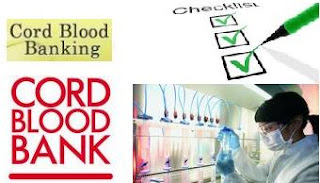Every year thousands of Americans seek an unrelated stem cell donor. Cord blood does not have to be exactly matched to the patient, and hence, cord blood donations are particularly important to provide transplants for patients who are of minority or mixed heritage. However, there is no guarantee that the cord blood will be used in the future.
Should you consider donating your infant's cord blood to a public bank? Or should you bank it for your own family's use? Here is information that may help you decide.
Public Cord Blood Banking
Public cord blood banks collect and store donated cord blood stem cells for use for those who are in need of a stem cell transplantation and are a close enough match to the cord blood donor. Transplantations are anonymous and no information about your baby is provided to the patient receiving the cord blood.
Both the American Academy of Pediatrics (AAP) and American Medical Association (AMA) recommend public cord blood banking over private cord blood banking. The reason is:
- Public cord blood banking is free.
- Public cord blood banking makes stem cells available to anyone who needs them.
- Public cord blood donation will increase the number and diversity of cord blood units available for patients. Widespread donations by minorities will expand the available pool of minority cord blood units in the public system and make it easier for the following groups to find matches:
- American Indians and Alaska Natives
- Asians
- African-Americans
- Hispanics
- Native Hawaiians and Pacific Islanders
- People who are multiracial
If you choose to donate cord blood for public use, you should be aware that the blood will be tested for both genetic abnormalities and infectious diseases. If any are found, someone will notify you. - American Indians and Alaska Natives
Private or Family Cord Blood Banking
Private cord blood banking provides you with the option to have your baby’s cord blood collected and stored for your baby or another close family member if ever needed. Whereas publicly donated cord blood is used for unrelated transplants and research, cord blood stem cells stored with a private bank are available for the exclusive use of your family. Banking your baby’s cord blood in a private bank provides an exact match for your baby and can potentially be a match for siblings and parents.
The American College of Obstetricians and Gynecologists (ACOG) neither recommends nor advises against cord blood banking. But along with the AAP and AMA, it cautions parents about private cord blood banking. The reason is:
- Collection and storage costs at private cord blood banks are high.
- Other effective treatments may be available that are less expensive.
- The chance of privately banked cord blood being used by your child is extremely low.
- Stem cell transplant using an individual’s own cord blood (called an autologous transplant) cannot be used for genetic disorders such as sickle cell disease and thalassemia, because the genetic mutations which cause these disorders are present in the baby's cord blood. Other diseases that are treated with stem cell transplant, such as leukemia, may also already be present in a baby’s cord blood.
Choosing either a public or private cord blood bank is a personal decision that you should make for yourself after reviewing information and having a discussion with your health care provider.




0 comments:
Post a Comment